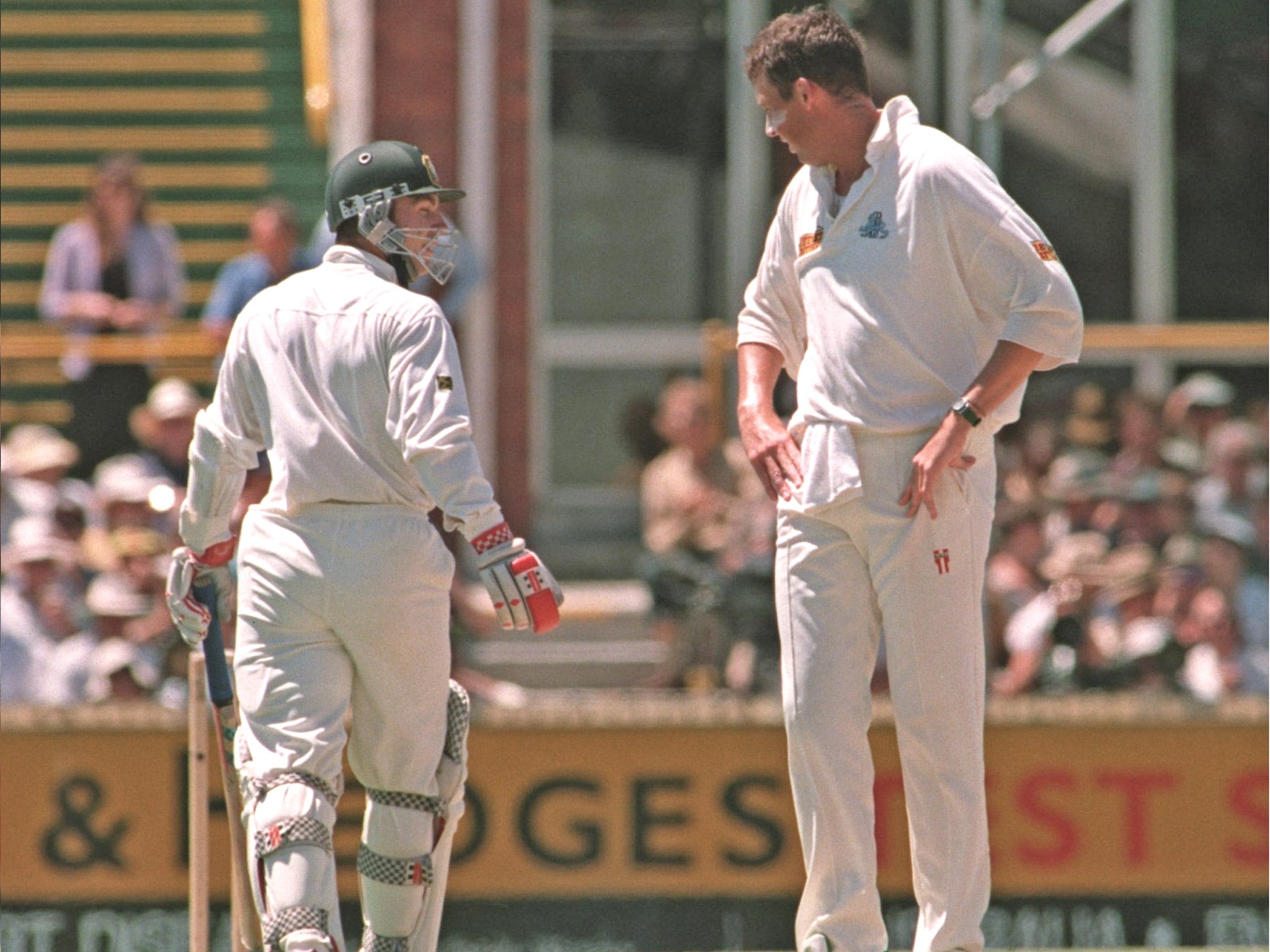Angus Fraser: The 'Baggy Green' must mean less now than it did in my day
It's the opposite of the attitude that existed in the great Aussie teams

For England and their fans the news from the Australian camp just seems to get better and better. With the Ashes less than four months away it has been reassuring to see England's greatest rivals getting stuffed by India, a team Alastair Cook's side defeated handsomely before Christmas. Then, four members of Australia's squad in India, including Shane Watson, the vice-captain, get dropped from this week's third Test for refusing to contribute to something that could potentially help the team – well, it's manna from heaven, especially for those of us who spent a career watching the Aussies serenely dominate the world game.
From the outside the disciplinary action taken by Australia's management team may seem harsh. Mitchell Johnson, Usman Khawaja, James Pattinson and Watson were not caught fighting after a rowdy, late-night drinking binge. No, their crime was that they failed to offer the team their thoughts on how they could improve performances in India, where they have lost the opening two Tests of the four-Test series.
Many may argue that this is a minor offence and the management, like strict teachers, are being over-officious. Yet, despite the misdemeanour appearing trivial, I believe it to be similar, if not worse, than having a session on the booze. Both would suggest unprofessionalism but this offence shows a lack of commitment to the cause and respect for those in authority.
Mickey Arthur, Australia's South African coach, has been wounded too. He and the top people in Australian cricket must be wondering why players chose to ignore a seemingly inoffensive directive. Australia had to react as they did, especially if it's true that lots more has been going on.
In a team, responsibility goes both ways. In terms of finance, support and facilities modern players rightly expect a lot from governing bodies, coaches and managers. In return, those in authority expect commitment and discipline. This incident is very disturbing for Australian cricket but it should remind the cricketers what it means to wear the "Baggy Green".
When a team is getting its backside kicked around a country it needs all players to come together. Cricket is a game where an individual can change a match or series, but as a rule it's the team that turns things around. That these players did not do as they were asked suggests that they were more interested in looking after themselves than the team. It is the total opposite of the attitude that existed in the great Aussie teams of the previous 20 years that I so often played against.
The most disturbing factor is that one of the guilty parties is the vice-captain, whose position demands that he should be taking interest in, contributing to and coming up with ideas about what can be done to improve the situation. With senior players such as Ricky Ponting and Mike Hussey retiring, Australia need players like Watson to set the right example and support what a new management team is trying to put in place. This affair highlights a lack of cohesion at the top of Australian cricket.
The saga makes you wonder whether the current players take the same pride in wearing the "Baggy Green" as those that wore it before. Steve Waugh created the aura that surrounds the cap.
Some England players of my generation thought the whole concept of the "Baggy Green" was nauseating. I liked it. I remember sitting devastated in the England dressing room at Old Trafford in 1989 after the Ashes had been lost, enviously listening to the Australian team sing their team song, "Under the Southern Cross I Stand". At the time it seemed it meant more to wear an Australian cap and to play for them than it did for England.
By treating the cap as they did they produced something that was always more important than any individual. It was an honour and it kept players in check. A player's behaviour was judged by the values the cap represented.
Now it seems the focus has strayed from the Test team and is more on the money Twenty20 cricket can generate. The Indian Premier League auctions are awash with cricketers from Australia and the Big Bash, Australia's T20 extravaganza, dominates their summer.
The Sheffield Shield, the first-class competition that has produced so many great cricketers, has been pushed to the perimeter. There have even been rumours of the volume of first-class games being reduced and the matches being played in the off-season – April to September – to accommodate more T20.
Despite Australia's predicament, England supporters should not gloat too much. It was not long ago that England were in a similar position through the antics of a certain Kevin Pietersen. Four months in sport is a long time.
Watson: Harsh to drop me
Shane Watson believes he has been unfairly treated by the Australian set-up. "I did the wrong thing," he said, "but it's harsh [to drop me]." Watson also hit out at performance manager Pat Howard, who said Watson was only "sometimes" a team player. "Pat doesn't know me very well. He's come from a rugby background and hasn't been around cricket very long."
On captain Michael Clarke Watson added: "We're quite different people in some ways. Like in every relationship, it goes up and down."
Subscribe to Independent Premium to bookmark this article
Want to bookmark your favourite articles and stories to read or reference later? Start your Independent Premium subscription today.

Join our commenting forum
Join thought-provoking conversations, follow other Independent readers and see their replies